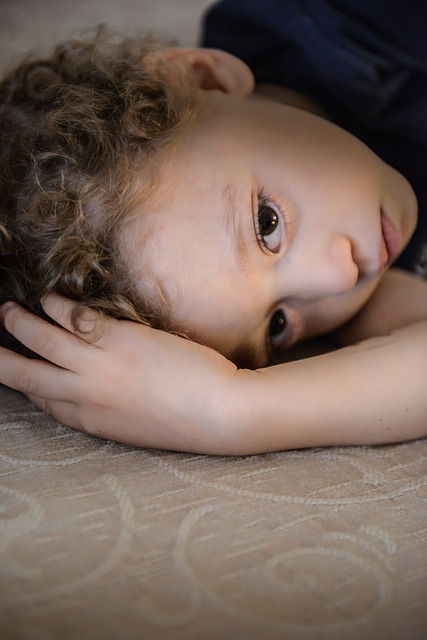Children of Addicts: Life On Crazy Street
The influence a parent with drug or alcohol addiction issues has on household children can range from mild to extreme, with dysfunctional behavior patterns and emotional chaos setting the tone for a child’s life, which carries straight through to their adults years.
In what would be considered extremely rare cases, there are stories of children who grew up in dysfunctional families and managed to thrive as grownups. But life with a parent who has an addiction problem, who has never undergone any drug addiction treatment is very often cruel and unpredictable – a very challenging life for a child whose birthright might be expected to include feelings of security, safety and consistency when they are under their parent’s care. It’s better to seek help from the best rehab uk to get the right program that you need.
Parental consistency is vital to a child’s sense of reality. When a child turns to the parent and asks what color is the sky, the parent says “blue.” This is a constant with what the neighbors say and what the teachers in school say. When a child, however, is scared at home but the parent defines this as “You’re OK. You’re not in any danger,” then the child does not automatically distrust the parent, but tries to incorporate this information into their sense of reality. Some psychologists call this “crazy-making.”
The classic scenario is an alcoholic parent fighting violently and loudly at night with the other parent. All the children hear the commotion. They cower in bed under their blankets. In the morning, the mother is cooking eggs and the father is reading the newspaper as if nothing happened. This is the essence of crazy-making. A child’s sense of reality is challenged by the distortions presented to them because of an addict’s crazy behavior. The professionals from rehabs near me can help them overcome the addiction issues.
Addictions affect a family’s relationships among themselves and with friends. It affects the family’s finances and the addict’s physical health. Many of these problems are explained to outsiders as a string of bad luck. This also contributes to a child’s sense that reality is being distorted. They know it’s not bad luck, but an unnamed problem (the addiction) among one or both of their parents that is the root of the problem. But they haven’t the clinical expertise to allow them to appreciate their intuitive reasoning.
Addictions affect an addict’s emotional life. The drugs and alcohol numb the addict to the point that they put off processing emotional issues. While not realizing it the root cause of the emotional blockage is made possible through alcohol or drugs, the children of addicts also learn emotional avoidance. They see one or both parents putting emotional issues aside. They lack role models who will show them that processing emotions is healing and safe.
Parents are role models in hundreds of ways to their children. A parent with a beer in one hand a steering wheel in the other or driving while high on a different substance is teaching their children to take risks. Excessive risk-taking is one of the potential warning signs that a child may be prone to an addiction as an adult.
Addictions can also lead to social isolation. Over time, as alcoholism develops to a later stage, alcoholics tend to spend more and more time drinking alone. Addicts, in general, become protective of their alcohol and drugs. They associate more and more with other addicts who do not challenge their addiction. Over time, their social world shrinks and shrinks.
This isolation teaches a child that their family is strange or different and has secrets to keep from the outside world. This, too, contributes to a child learning to be emotionally avoidant.
Children of addicts tend to grow up faster than they should. They end up missing out on childhood activities, such as parties or sports. When a parent has passed out due to use of alcohol or drugs, it may fall upon the oldest child to cook dinner for themselves or for siblings even at a young age.
Addicts also present to their children higher rates of divorce, family violence and incest. Addictions, almost by definition, include desperation. One celebrity, the rock and blues guitarist Eric Clapton once said he would have killed himself, except that he knew if he was dead he could no longer drink, so he stayed alive. It doesn’t get much more desperate than that.
Some of this ends up with an odd set of possible ways to spot the children of a drug or alcohol addict. Some of these children may be quite mature, as they are the only responsible “adult” in the family. They are very protective of parents and siblings, having learned from parents that outsiders are a threat.
Other children of addicts present out-of-control behavior. They swear, like adults, and don’t care what the consequences of their actions might be. They may show little remorse about hurting others. After all, this is their parent’s attitude about hurting their children. Parents may have spent a period of time apologizing to their children for their shortcomings. (“I’m sorry I forgot your birthday.”) But over time, these apologies just become linked with more disappointments. In turn, children of addicts often say they are sorry for bad behavior one minute and say, “I don’t care,” in the next minute.
Help for this article came from The Canyon Malibu at http://thecanyonmalibu.com/drug-treatment/parents-with-children/, Web MD at http://www.webmd.com/add-adhd/guide/adhd-and-substance-abuse-is-there-a-link and from Scientific American at http://www.scientificamerican.com/article/do-it-yourself-addiction-cures/.

